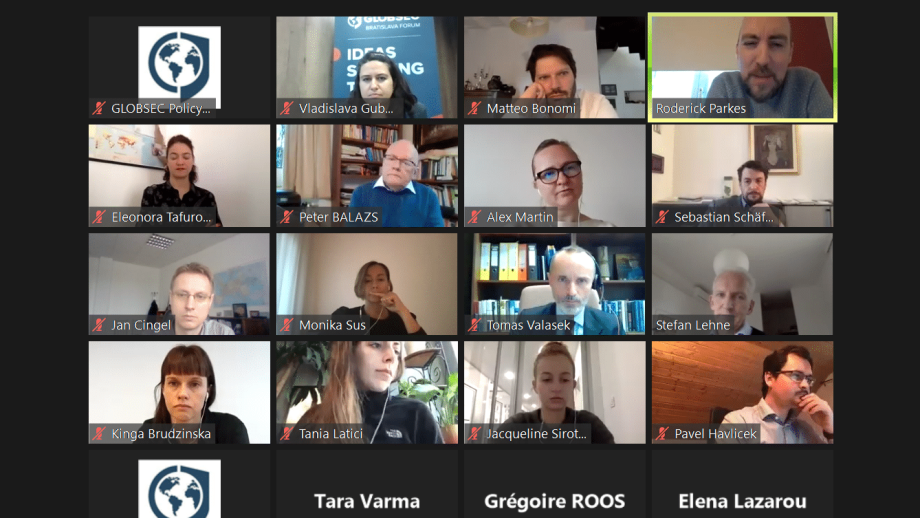Summary and Reflections from “Mapping National and Regional Approaches to a More Coherent European Common Foreign and Security Policy: A Workshop” event, 26.11.2020

On 26 November 2020 we kicked-off our new project GEOPE—Geopolitical Europe: Are the Member States Ready for It? In an online event, we had a valuable discussion with 21 European experts from 10 different countries, representing 15 European organisations. We began with mapping out the national approaches of Germany, Italy and Slovakia to its own foreign and security policies and the EU’s common foreign and security policy (CFSP). An evaluation of the current state of the CFSP followed, with some recommendations for the future. And, finally, we took a deeper look into the potential of European strategic autonomy and the enlargement and neighbourhood policies as areas where member states (MSs) can converge for a more coherent EU foreign and security policy.
Aspiring to be a Geopolitical Europe comes with certain expectations and among these are for the European Union (EU) to act more coherently in the international environment, to act quicker, and to acquire a more significant role. Yet, today, if all else equal, the global shifts have exposed a trajectory of the declining influence of the Union in the international stage.
In the midst of the changing global environment, divisions within Europe, which are being driven, among others, by political ideologies, identity politics, national agendas and priorities, regional peculiarities, differences of threat perceptions, sometimes even lack of trust, present one of the main obstacles to a more coherent EU CFSP. Doubled with the current lack of decision-making flexibility, a complex web of institutional involvement, and limited financial resources on the European level, if well-designed changes and compromise among MSs are not introduced, it is doubtful that the EU will be able to gain much influence in the global environment.
Our discussion exposed that MSs indeed put great attention to their national priorities and are only slowly starting to adjust them based on global shifts and keeping in mind the EU’s role. Considering megatrends and thinking about strategic foresight can bring the MSs closer to a more coherent CFSP. However, without proper ambition from the MSs and clarity of purpose, scope, deliverables, and responsibilities from all actors involved—national and supranational, it would be challenging to enact successful policies and keep up with the global environment shifts.
You can read the detailed summary here.
*This summary is published within GLOBSEC GEOPE—Geopolitical Europe: Are the Member States Ready for It? Project supported by Jean Monnet Actions of the EU’s Erasmus+ program.
The European Commission support for the production of this publication does not constitute an endorsement of the content, which reflects the views only of the authors, and the Commission cannot be held responsible for any use which may be made of the information contained therein.
